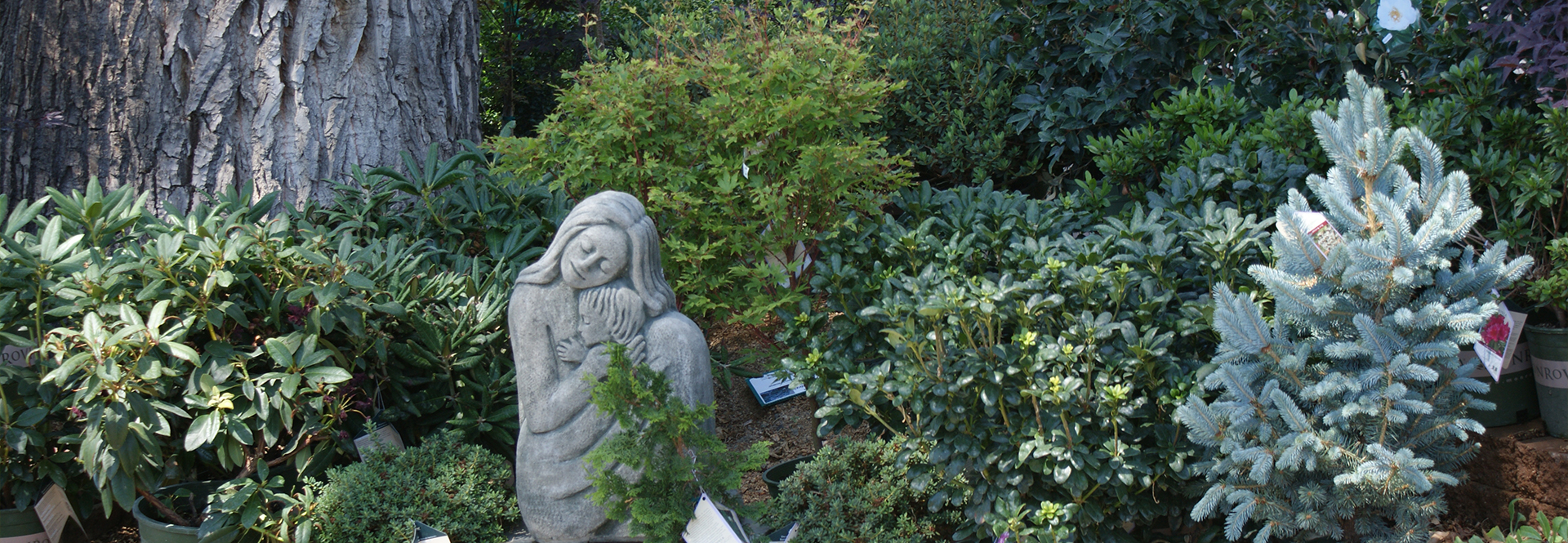by Ken Lain, the mountain gardener
- What ground cover grows best in shade areas?
- What is the fastest growing ground cover plant?
- Full shade ground cover plants Prescott Arizona.
- What is the best low maintenance ground cover under trees?

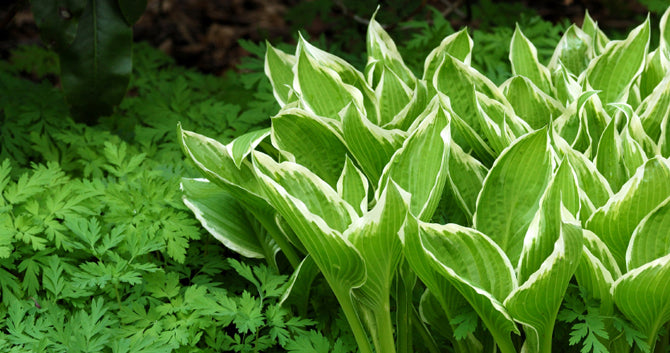
Plants that perform well as ground covers in shady areas earn this reputation because they are incredibly tenacious and thrive without much sunlight. In the mountains of Arizona, it is much easier to find plants that love sun, heat, and wind. Between the shady spots of trees, under patios, or the north side of that two-story home, the choices shrink considerably.
Part Shade Means Some Sun – A prevalent garden error is thinking a plant that tolerates shade will grow in a complete dense shade. Horticulturists define a “part shade” plant as needing 2 to 4 hours of sunlight per day, like east or direct west exposures. If you have a thick, full shade location getting no direct sunlight, make sure to choose plants rated for such sites. There aren’t many of them, but several are described here.
Here are 12 common ground cover plants you should know about.
Hosta is planted under high shade tree canopies in masses where their foliage attains the most significance. Solves problem shade in side yard conditions between multistory buildings. Ideal under shade arbors at outdoor living spaces. Excellent container plant under a patio canopy and on shaded decks and terrace.
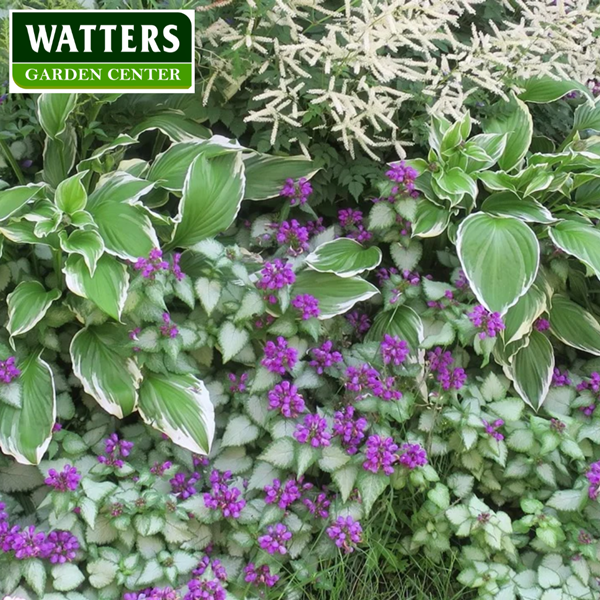
Dark Purple Dead Nettle, Lamium maculatum, shimmering silver leaves with emerald green edges form a lush groundcover with large, abundant, deep purple flowers from spring to summer. Perfect for brightening shady areas or trailing from mixed containers.
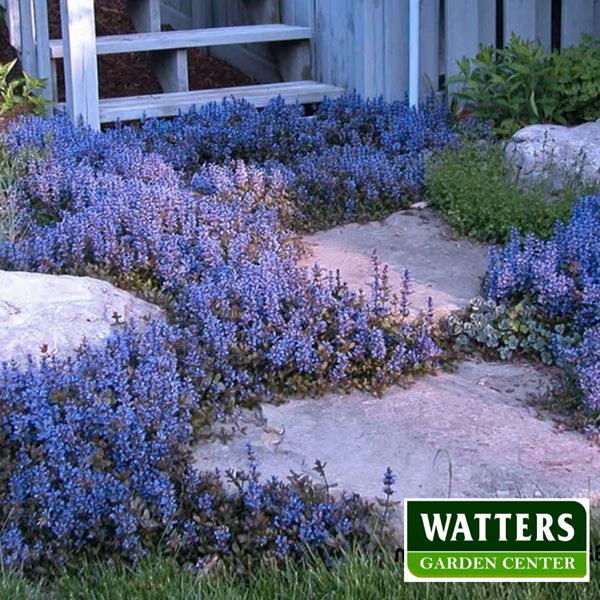
Bugleweed, Ajuga tenorii, has gorgeous, cream-purple foliage with glowing pink edges. Royal blue flower spikes bloom in spring, often lightly repeating in late summer. This unique perennial forms a tight, cushion-like clump. Ideal for mass planting as a groundcover or border edging or for contrast in mixed containers.
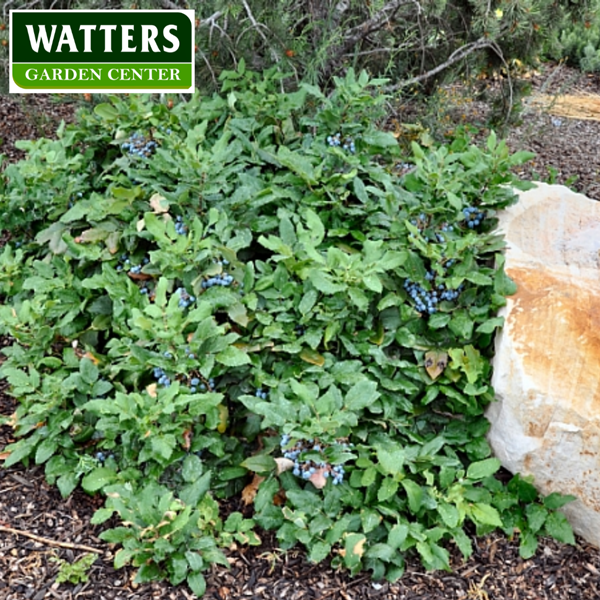
Creeping Mahonia, Mahonia repens, is one of the best western natives for gardens with many oak trees and deer. Dense prickly growth can be used as an edging material to ease the transition from paving to a shade garden. A natural drought-resistant component of wild and woodland gardens for weed control and around the edges of landscape boulders. Looks captivating, spreading out in Asian-style gardens beneath shrubs that have lost their lower leaves. One of few plants to willingly grow under native juniper trees.
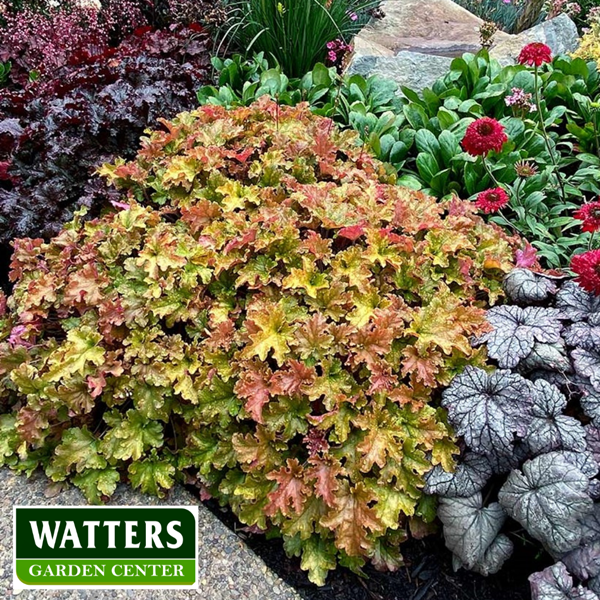
Coral Bells, Heuchera, sends up sprays of hot pink blooms in late spring that lure hummingbirds to the garden and features some of the darkest foliage to be found in a shade garden. The ruffled purple-red leaves add stunning depth to gardens and mixed containers. Evergreen through mild winters. Heuchera also comes in lime green, black, copper, and purple foliage.
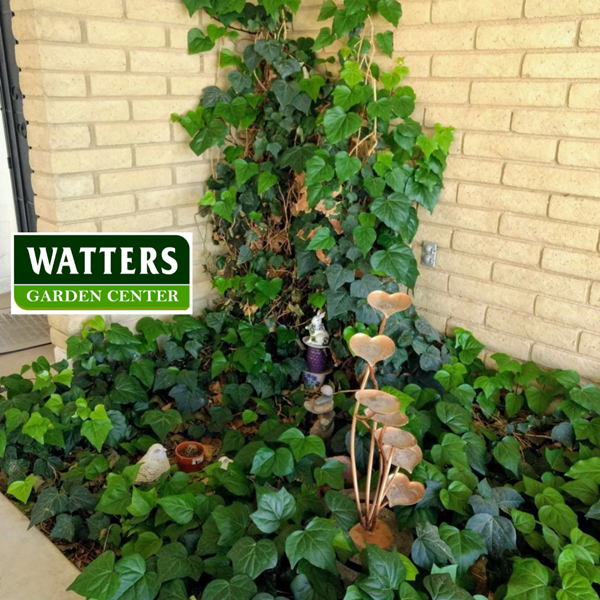
English Ivy, Hedera helix, is the only evergreen vine that stays green in a dark shady garden. Large lustrous foliage stays waxed green through winter, forming a lush groundcover under large shrubs and trees. Quickly climbs walls, pillars, arbors, and fences without support. One of the best vines uses to dangle from the edge of hanging pots and baskets or cascading off the edge of tall urns planted with upright fillers.
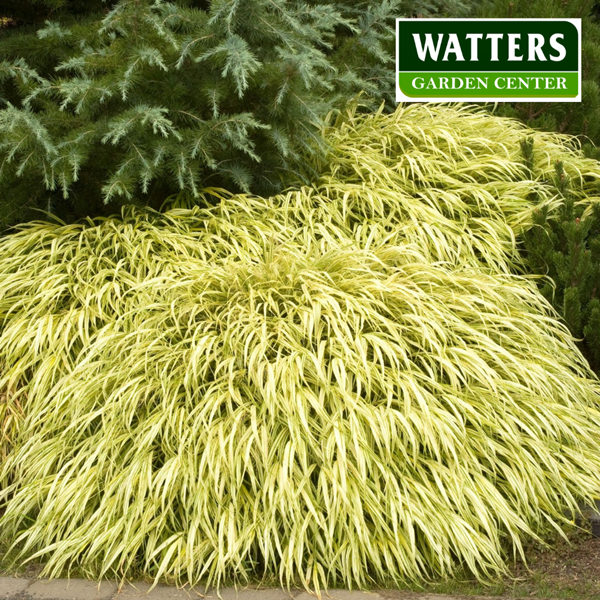
Japanese Forest Grass, Hakonechloamacra, is a graceful, colorful groundcover for shady areas. Slender stems hold bright golden-yellow foliage having the effect of a miniature bamboo plant. Great in containers or color accent through dark borders.
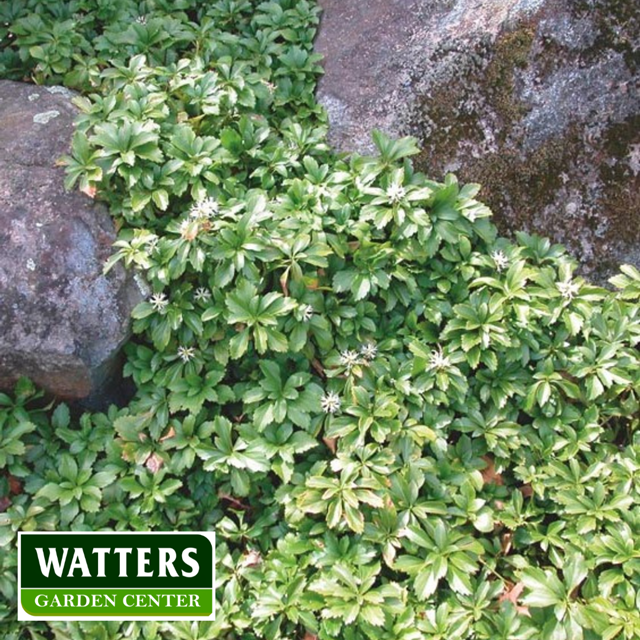
Japanese Spurge, Pachysandra terminalis, This has long been the most reliable mountain groundcover for shade. Perfect for planting under the canopies of older trees, where little else grows. A lifesaver on the north sides of walls or north-facing slopes and between tall multistory buildings. Works nicely in the front of shaded borders or as filler between larger shrubs. Dense enough to keep down weeds, it is an excellent solution for dark parts of the garden, where other plants fear to tread.
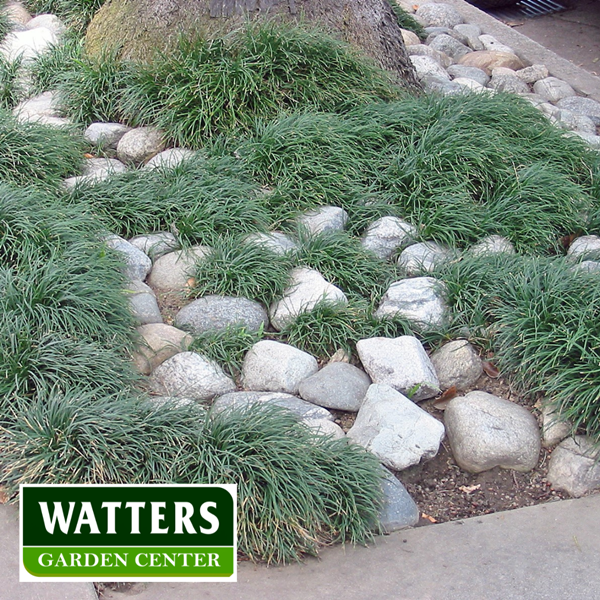
Mondo Grass, Ophiopogon jaburan, has neat, glossy foliage perfect for contemporary shady landscapes accompanying other perennial shade-loving plants. An improved, cold-hardy selection with deep green, glossy foliage that resists winter damage and disease. White, star-shaped flower spikes emerge from neat mounds in midsummer.
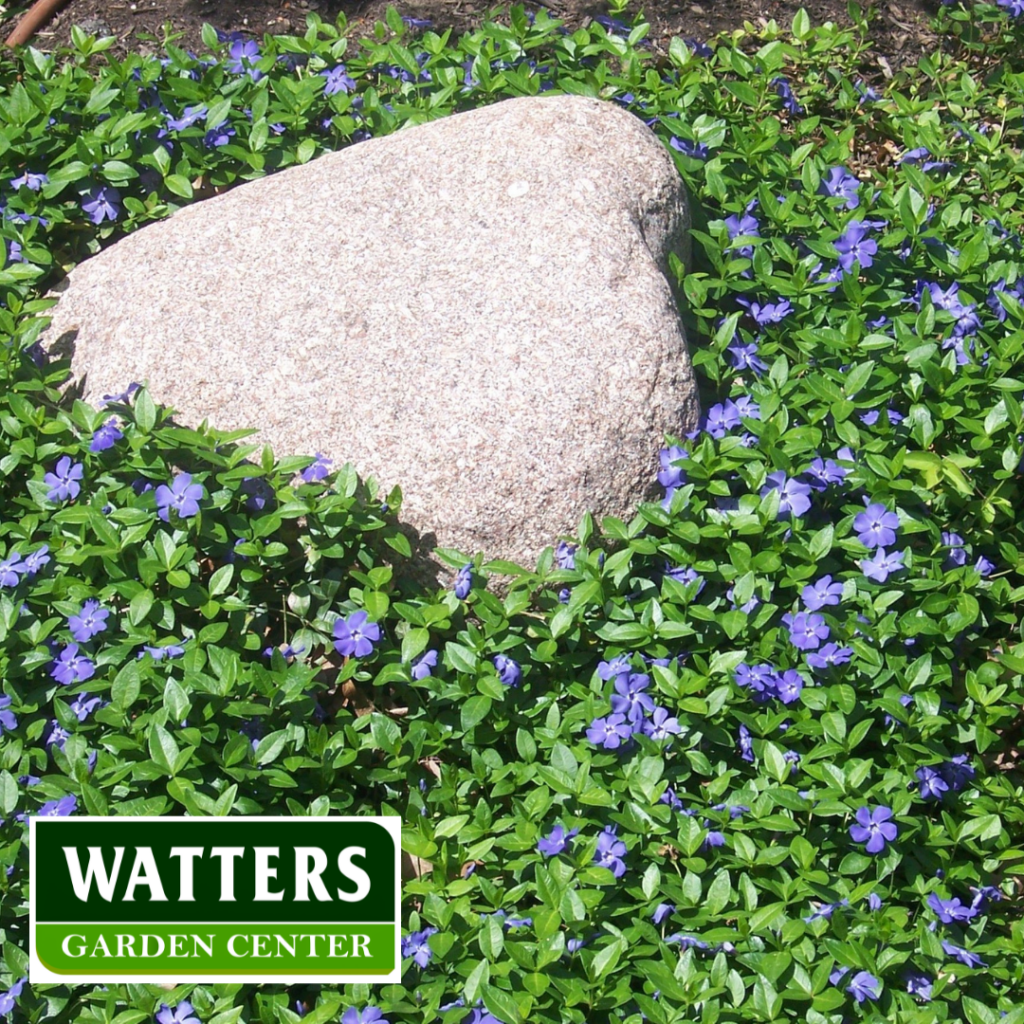
Periwinkle, Vinca Minor, is one of the best groundcovers for shade, displaying large, violet, pinwheel-shaped flowers against glossy dark leaves. Sun tolerant in cool mountain gardens. In hot summer gardens, plants in dappled to deep shade. Good for use as a fire escape planting.
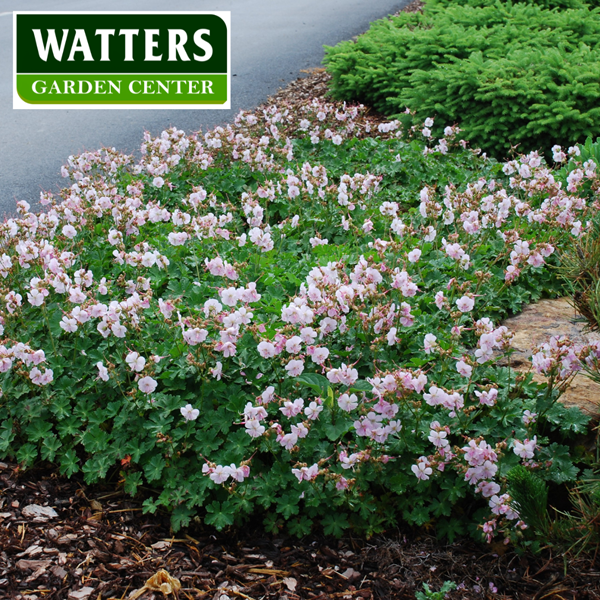
Tiny Monsters Cranesbill, Geranium, quickly spreads, making it an excellent groundcover, with attractive, magenta flowers that bloom longer than most shade plants. Autumn shows gorgeous fall colors of purple and bronze. Locally known as the perennial geranium.
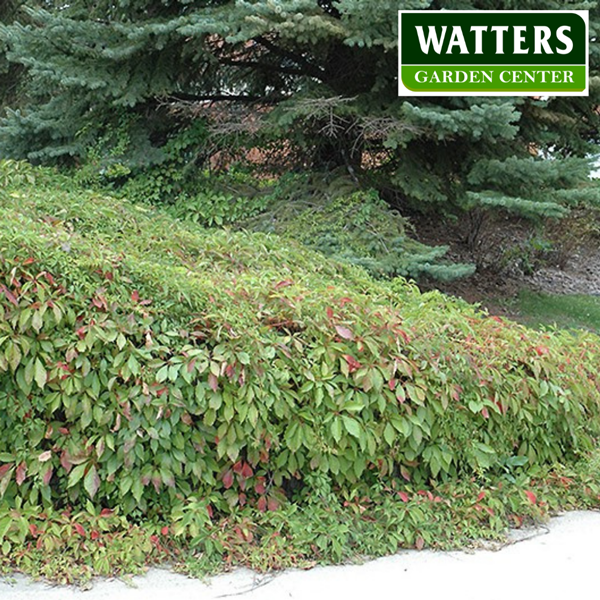
Virginia Creeper, Parthenocissus quinquefolia, is a native vine specially selected to dress up those miles of stockade fence. A mountain vine with rich green foliage turns fire engine red through October with blue fruit accents. When spaced at 8′ intervals, this fast-growing vine covers a boring fence within a season. Plant red walls of beauty that are both deer and javelina PROOF! One plant covers a 10′ x 10′ area as a groundcover and quickly climbs between boulders.
Until next week, I’ll be helping local gardeners plan exciting shade gardens here at Watters Garden Center.
Ken Lain can be found throughout the week at Watters Garden Center, 1815 W. Iron Springs Rd in Prescott, or contacted through his website at WattersGardenCenter.com or Top10Plants.com

